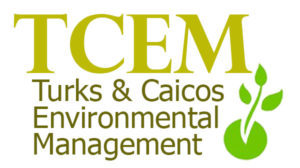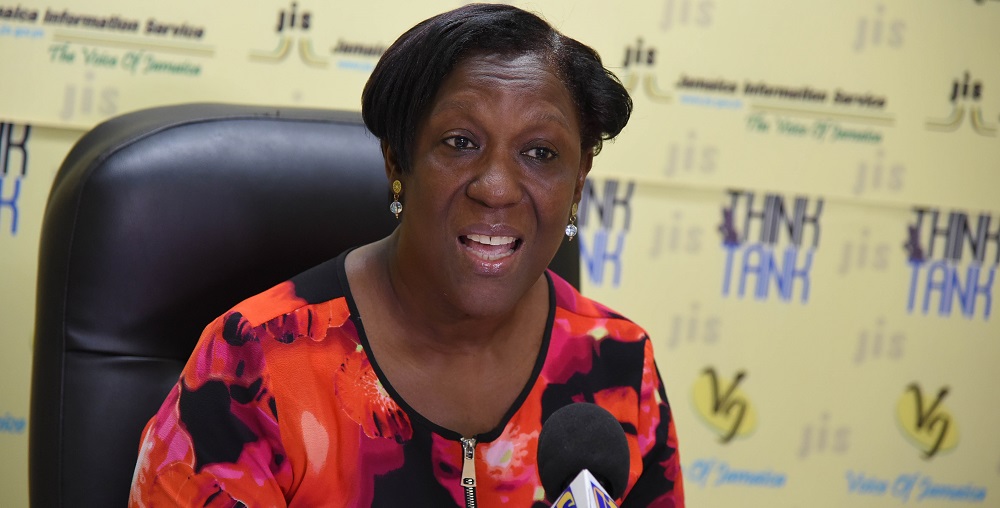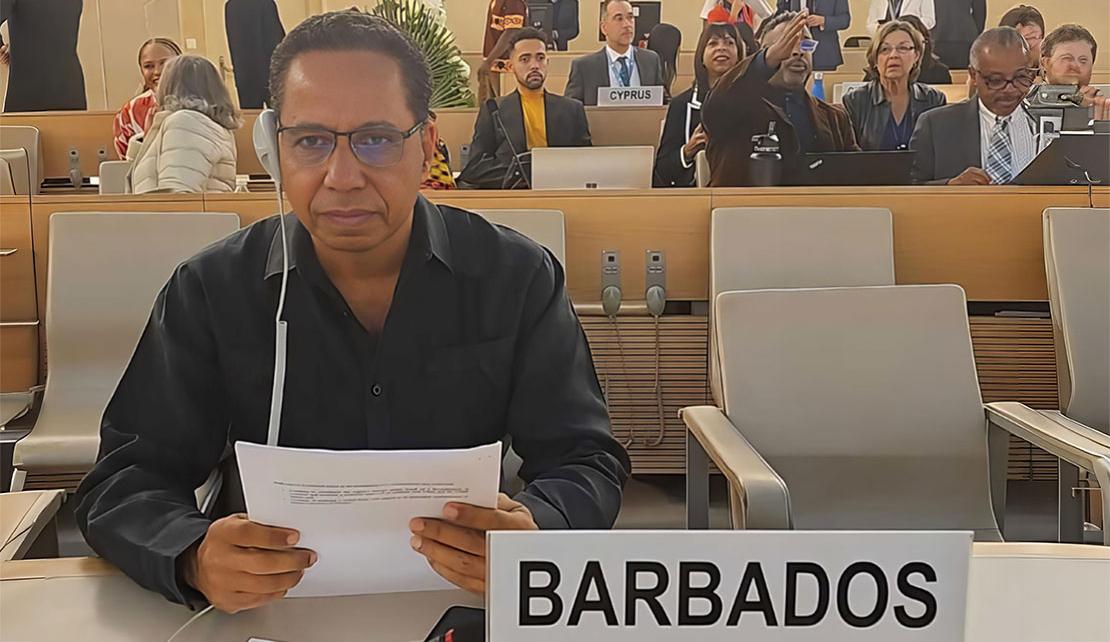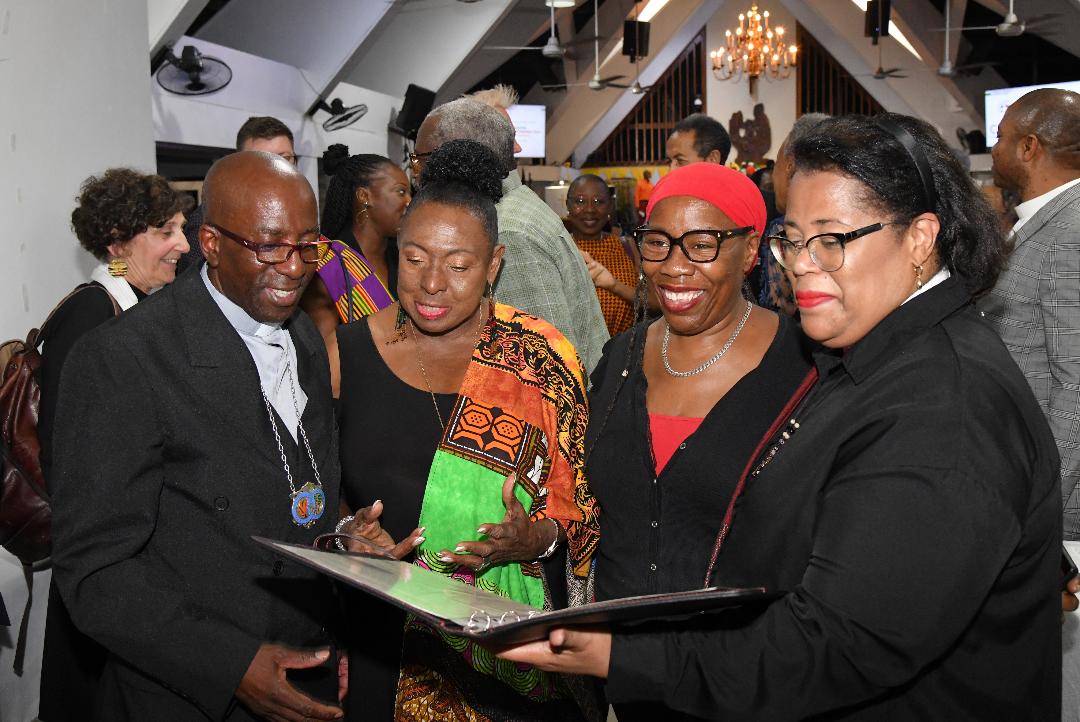#Kingston, November 9, 2018 – Bahamas – Jamaicans are being encouraged to learn about the various forms of gender-based violence (GBV) and the support systems available.
This call was made by Director, Policy and Research, Bureau of Gender Affairs, Sharon Robinson, at a Jamaica Information Service (JIS) ‘Think Tank’, held today (November 7) at the agency’s head office in Kingston.
 “We find that in some cases, persons who report abuse are not aware of what is in place. First of all, they might not even be aware of the definition of violence. For some they believe that what is happening is normal and natural,” she said.
“We find that in some cases, persons who report abuse are not aware of what is in place. First of all, they might not even be aware of the definition of violence. For some they believe that what is happening is normal and natural,” she said.
GBV is an umbrella term for any harmful act that is perpetrated against a person’s will. It includes human trafficking, domestic and intimate partner violence, incest, rape, bullying and sexual harassment.
Additionally, Mrs. Robinson said that persons may be experiencing violence for years and do not recognise that it is wrong, or they may be aware of what is happening and “think that the perpetrator is going to change overnight and keep excusing these persons”.
“What we say to such persons is that they need to equip themselves with information first of all, and to understand that there is absolutely no excuse for violence, and to find out where help is available and get help,” she added.
Mrs. Robinson is advising persons to connect with churches, community groups and service providers that will have access to services.
“The idea is not to stay in silence and suffer by yourself but to reach out to others to get help,” she said, adding that in many cases, “it is economic dependence, and the victim may think that they need the support from the perpetrator, who may be earning more, as well as the house that they are occupying”.
Citing some of the key findings of a Women’s Health Survey 2016, Mrs. Robinson said it revealed that emotional violence was the number-one form of violence in an intimate partner relationship, followed by physical and sexual violence.
“So, that is something we learnt, because in most cases when people speak to violence they talk about physical violence and sexual violence, but the results showed that emotional violence – name calling, labelling, belittling and demeaning, attaching stigma and discrimination – was the number-one form of violence involving an intimate partner relationship where there is violence,” she said.
Mrs. Robinson noted that the highest rates of intimate partner violence occurred among women with vocational skills training or higher level education.
 “That again for us was shocking, because persons thought that in most cases the violence was perpetrated among persons in the lower socio-economic groups with low-level education,” she added.
“That again for us was shocking, because persons thought that in most cases the violence was perpetrated among persons in the lower socio-economic groups with low-level education,” she added.
Meanwhile, the Director said the Bureau is planning to develop a text line for persons with speech impairments. She said the group had requested a toll-free number that they can text, in order to share information.
“They would like to have the opportunity to reach out to persons to share information and to call for help if needed without having to use phone credit or data,” Mrs. Robinson said.
Government is taking steps to prevent GBV and has implemented the National Strategic Action Plan to Eliminate Gender-based Violence (NSAP-GBV) in Jamaica. The 10-year plan focuses on five strategic priority areas – prevention, protection, intervention, legal procedures and protocols for data collection.
Release: JIS
Contact: E. Hartman Reckord
Photo Caption: Director, Policy and Research, Bureau of Gender Affairs, Sharon Robinson, speaks about the various forms of gender-based violence, at a Jamaica Information Service (JIS) ‘Think Tank’, held today (November 7) at the agency’s head office in Kingston.
JIS Photographer: Rudranauth Fraser


 Caribbean News1 week ago
Caribbean News1 week ago
 News1 day ago
News1 day ago
 Health1 week ago
Health1 week ago
 Caribbean News3 days ago
Caribbean News3 days ago
 Caribbean News6 days ago
Caribbean News6 days ago
 Health1 week ago
Health1 week ago
 Caribbean News6 days ago
Caribbean News6 days ago
 Bahamas News4 days ago
Bahamas News4 days ago









